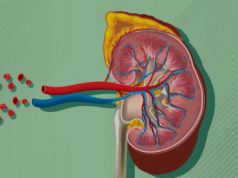Lifestyle disorders, commonly known as noncommunicable diseases (NCDs), are health illnesses caused mostly by personal behavior and lifestyle choices. These illnesses represent enormous problems to global public health, resulting in a high morbidity and death burden. However, taking preventative actions and making good lifestyle changes can help you manage and control these problems more successfully.
Causes of Lifestyle Disorders
Lack of physical activity and prolonged periods of sitting increase the risk of obesity, heart disease, diabetes, and other NCDs.
Consuming excessive amounts of processed foods high in sugar, salt, and unhealthy fats can lead to obesity, hypertension, and metabolic disorders.
Use: Smoking and chewing tobacco significantly raise the risk of developing cardiovascular diseases, respiratory disorders, and certain types of cancer.
Consumption: Regular and heavy alcohol consumption is associated with liver diseases, hypertension, mental health disorders, and increased risk of accidents.
Chronic stress and inadequate stress management can contribute to the development of NCDs such as hypertension, anxiety disorders, and depression.
Poor sleep quality and insufficient sleep duration are linked to obesity, diabetes, cardiovascular diseases, and impaired cognitive function.

Tips to Control Lifestyle Disorders
Engage in at least 150 minutes of moderate-intensity aerobic activity or 75 minutes of vigorous-intensity aerobic activity weekly, combined with muscle-strengthening exercises on two or more days per week.
Consume a variety of fruits, vegetables, whole grains, lean proteins, and healthy fats while limiting intake of processed foods, sugary beverages, and excessive salt.
Quit smoking and avoid exposure to secondhand smoke. Seek support from healthcare professionals or cessation programs if needed.
Drink alcohol in moderation, adhering to recommended guidelines (e.g., no more than one drink per day for women and two drinks per day for men).
Practice stress-reducing techniques such as mindfulness, meditation, yoga, deep breathing exercises, and hobbies to promote relaxation and emotional well-being.
Aim for 7-9 hours of quality sleep per night by maintaining a consistent sleep schedule, creating a conducive sleep environment, and practicing relaxation techniques before bedtime.









